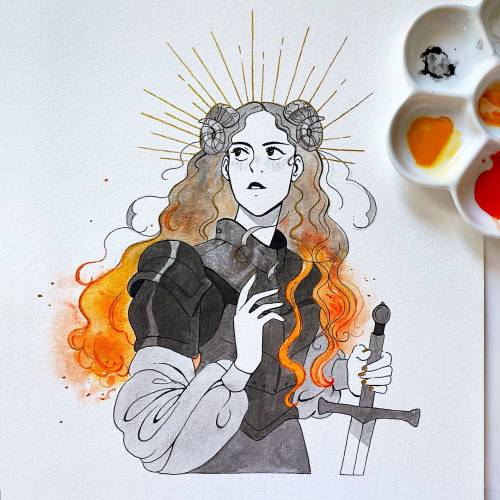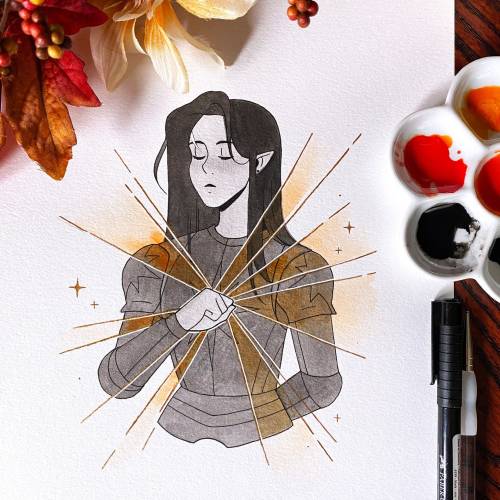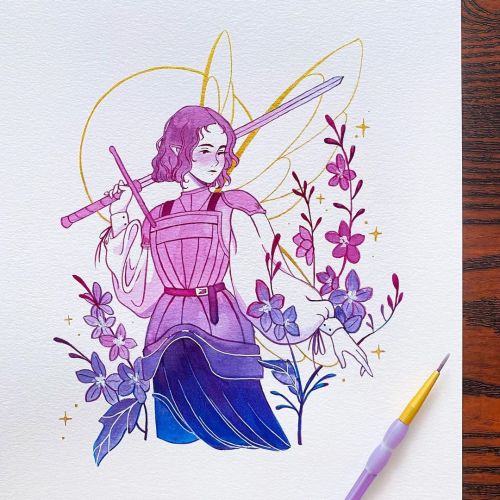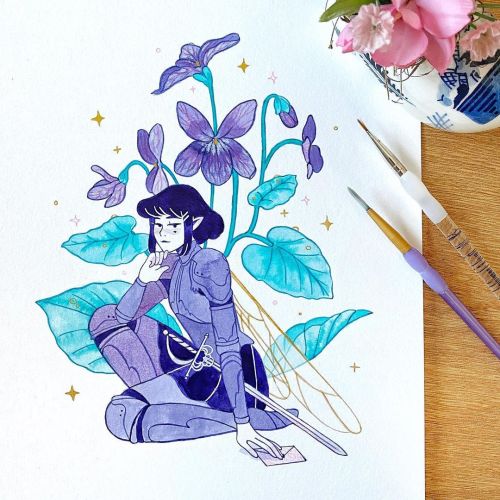Learned-something-new-today - A Place To Put Cool Finds

More Posts from Learned-something-new-today and Others



Mushroom Tent on Etsy
Questions to ask yourself when writing an Autistic character
In media, canonically autistic characters are commonly portrayed as false stereotypes about autism, or they convey false/outdated information.
For anyone writing an autistic character, there should be many questions to ask about that character. As someone who has ASD, I really like to see well written autistic characters. Here I have compiled some questions that I use when starting a new character. I have also included links on terms that may be unfamiliar for those just starting out. This list is just a handful of questions, so make sure to continue researching.
General
1. How and/or when were they diagnosed as Autistic?
2. Do they view their autism as a disability? Why or why not?
3. What are some things they like and/or dislike about being autistic?
Support Needs
4. What are their support needs?
5. Do they struggle with executive dysfunction?
6. What kind of tasks are difficult for them?
7. What kind of tasks are they really good at?
8. What kind of accommodations do they have? (Specifically in a school or work environment)
Communication
9. What are their speech habits? Are they fully-verbal, semi-verbal, non-verbal, or does it vary?
10. Do they use echolalia and/or palilalia to communicate?
11. Do they use echopraxia to communicate?
12. Do they use AAC to communicate? If so, which type(s)?
Associated Conditions
13. Do they have/struggle with any kind of agnosia(s)?
14. Do they have/struggle with Alexithymia?
15. Do they have any other common or associated conditions?
Sensory and Stimming
16. Are they a sensory-seeker or sensory-avoidant?
17. What sensations do they like?
18. What sensations do they hate?
19. Describe a place that would be sensory-heaven for this character
20. Describe a place that would be sensory-hell for this character
21. What do they do to stim? Favorite stims? Least favorite stims?
22. Do they use echolalia, echopraxia, etc. for stimming?
Overload, Meltdown, Shutdown & Burnout
23. What puts this character into sensory overload?
24. What are meltdowns like for them? (What are signs a meltdown is starting? Do they seek or avoid comfort? How do they recover?)
25. What are shutdowns* like for them? (What are signs a shutdown is starting? Do they seek or avoid comfort? How do they recover?)
26. What is autistic burnout like for them? (What are signs burnout is coming? How long does it last? What kinds of support do they need? How do they recover?)
Special Interests
27. What are their special interests?
28. What kinds of topics can they infodump about?
Social
29. Does their family know? Are they supportive?
30. Do their friends know? Are they supportive?
31. What aspects of socializing are hard for them?
32. Are they very aware of their social difficulties (i.e. anxious and shy about socializing in fear of messing up) or are they less sensitive to their difficulties (i.e. unafraid/unaware of social mistakes, feels no anxiety to socialize)
*This link should take you to a playlist of videos that covers a lot of the topics talked about in this list. I highly recommend watching them!
Thank you for sticking it out to the end. I hope this helps!
SOUTH ASIAN RESOURCES
The Anthropological Masterlist is HERE.
South Asia is an Asian region that constitutes the Indian subcontinent and adjacent areas. South Asian cultures have cultural similarities to India.
AYYAVAZHI ─ “Ayyavazhi is an Indian religion. It originates in South India.” ─ Ayyavazhi Information ─ Ayyavazhi Teachings
BUDDHISM ─ “Buddhism, or Dharmavinaya, is a South Asian religion. It originates in India.” ─ Encyclopedia of Buddhism ─ Buddhist Sacred Texts ─ History of Theraveda Buddhism
HINDU ─ “Hinduism is a South Asian religion. It originates in India.” ─ Encyclopedia of Hinduism ─ Hindu Philosophy ─ The Rigveda
INDIA ─ “The Indian people are a South Asian people that share the Indian culture. They are native to India.” ─ Indian Culture & History ─ India in 1901 ─ Hindi Language
JAIN ─ “Jainism, or Jain Dharma, is a South Asian religion. It originates in India.” ─ Jain Sacred Texts ─ Jain Philosophy ─ Jain History
MEITEI ─ “The Meitei, or Manipuri, people are a South Asian people. They are native to the Manipur state of India.” ─ Meitei Religion ─ Meitei Mythology ─ Meetei-Mayek Script
SRI LANKA ─ “The Sri Lankan people are a South Asian people that share the Sri Lankan culture. They are native to Sri Lanka.” ─ Ceylon Information ─ Sri Lankan History ─ Sinhalese Dictionary
TAMIL ─ “The Tamil, or Tamilar, people are a Dravidian people. They are native to Tamil Nadu in India.” ─ Tamil Culture
Tips for working with children?
1. Don't lie to them if you can avoid it. Water down truths at your discretion, but if you try to lie outright, a good number of them are probably going to pick up on your weird energy and figure you're hiding something. This will very likely come off as "adult who doesn't think we're real people", which is how you promote rebellion.
2. Listen to the problems they come to you with. Imagine they were your problems. If Brůnden at work stole all your pens and ignored your requests to leave you be, you'd be pretty pissed if your manager told you to "just use your nice words" or "let him get bored". Decide what you would want an adult to do, and form a reasonable response.
3. Let some of your weird (child appropriate) interests show. Odds are, when they see your passion, they'll take interest. I accidentally wound up teaching an intro to animal biology to a group of first graders in my after school program this way, and it became what they knew me for. Great for bonding, teaching, and bartering for completed chores.
4. Learn about things they're interested in, but don't force it into things. It'll help you understand what you overhear, and pitch in at the right moment.
5. Treats and stickers. They work on adults, and they work on kids. Make them take a little bit of effort to earn, but also pick special occasions where everyone gets one free. Once you get a better idea of their personalities, lives, strengths, and weaknesses, you can tailor this for personal growth.
6. Acknowledge their feelings. Verbally affirm that they are upset, they are frustrated, they are angry or sad, and encourage them to explain why, and work to find acceptable solutions. Staying perfectly calm and happy while they're angry might help to a point, but ignoring their obvious feelings will make them feel that you don't care or understand, which will make things worse. A lot of kids have a hard time figuring out how adults feel, and why, so empathy will need to be clearer.
7. Play with them on their own level. When you play a game they started on their own, follow their rules, and if you can't, explain why. Expect a few of them to try and mess with you. You're not as distant or alien if you can fall for the same things they do, or admit when you've been outsmarted or outclassed. Be aware that some rules may change at random, and don't go all out on winning.
8. Be honest in ways other adults won't be. When telling a personal story, mention offhand that you didn't like someone, or someone was mean for no reason, or another adult was rude or broke rules, they'll see that you think and feel in similar ways as them, and it can reinforce that yeah, sometimes life is unfair, no, growing up doesn't numb your personality, and no, you don't have to feel happy and positive and pleasant all the time. Sometimes things just suck, and you need to handle it maturely. It's acting on bad feelings that's bad, not the bad feelings themselves. And hey, sometimes adults ARE mean or rude or wrong! They're not crazy or dumb when they notice!
9. Literally just be yourself. Curb any cursing or inappropriate subject matter, but otherwise, they'll recognize that you're an individual with your own personality, and either they'll like you or they won't. Either way, they'll decide how to act from there. Kids are mostly just distilled adults with social restrictions, they can adapt to a lot.



Botanical Bears // Ash Elizabeth on Etsy
The Author Speaks: All My Original Writing Content
For your convenience, a masterpost of all (or most) of my original posts so far. It will obviously be updated as I create and add more!
Enjoy, and thank you for reading! <3
The Basics: Plotting, Descriptions, and More
The Dos and Don’ts of Beginning a Novel
How to Write Good Dialogue
Notes on Chapters
My Top Tips for Sticking to That Damn WIP
How to Avoid Purple Prose
The Objective Correlative
Tips for Visual Thinkers
5 Ways to Name Your Novel
Romance
How to Write a Kiss Scene
How to Write a (Healthy) Romance
Mythology
Angelic Cheat Sheet
Irish Mythology Resources
Academia
Masterpost for Writing Academic Essays
Horror
My #1 Tip For Writing Horror
Monster of the Week
Werewolves
Vampires
Zombies
Characterization
How to Get to Know Your Characters
Male Protagonists to Avoid in Your Writing
Female Protagonists to Avoid in Your Writing
More Female Protagonists to Avoid in Your Writing
The Importance of Antiheroes
How to Write Strong Female Characters
The Many Faces of the Strong Female Character
The Traits of a Likable Hero
The Secret to a Relatable Villain
Types of Unreliable Narrators
How to Write (or Avoid) Abusive Parents
The Dos and Don’ts of Writing Smart Characters
Reference Masterposts
Depicting Deaf, Blind, or Mute Characters
Depicting Amputees
Depicting Wheelchair Users
Depicting Jewish Characters
Depicting Black Characters
Depicting ADHD
Depicting Autism
Depicting Trans Women
Depicting Trans Men
Depicting Nonbinary and Genderfluid Characters
Depicting Asexual Characters
Depicting Drug Addiction
Depicting Eating Disorders
Depicting Obsessive Compulsive Disorder
Depicting Schizophrenia
Worldbuilding Masterpost
Publishing Resources:
Places to Post Original Fiction
Marketing Masterpost
My Published Fiction:
Gentlefolk - A timid woman faces her deepest fears in order to try and reclaim her stolen child from charismatic local Nature Gods. Only to discover that everything she’s been taught about them might be wrong.
The New Gods - Society is populated by gods, new and old. Some are more frightening than others.
Gunpowder Sigil - In a windblown Western town, a young girl conducts a summoning ritual for a spectral gunslinger. Magical realism meets the Western.
The Undertaker’s Apprentice - A lovesick undertaker in training goes on a disastrous first date, with a corpse as a third wheel.
The Young Immortal - A relatively youthful member of the immortal community reflects on his first century of life and his relationship with his oft-reincarnated soulmate.
The Bear - An anxiety-ridden young man with a talent for avoiding his problems decides not to acknowledge the grizzly bear trapped in his bedroom during a busy a day.
Strange New Worlds Anthology - A compilation of my short fiction, including previously published and previously unseen works. Set to release in 2022.
Happy writing, everybody!
frog machine


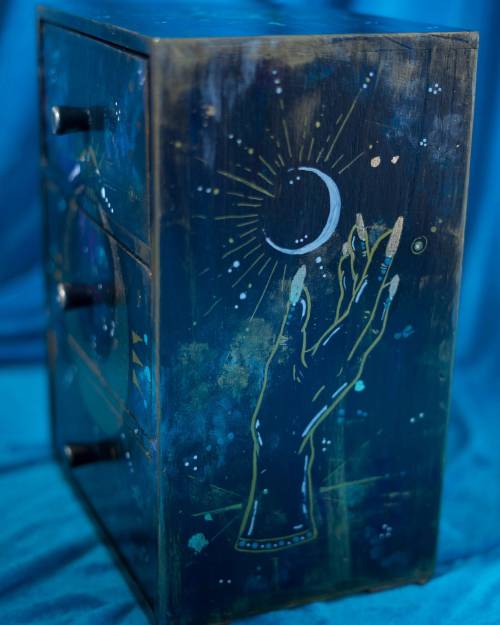




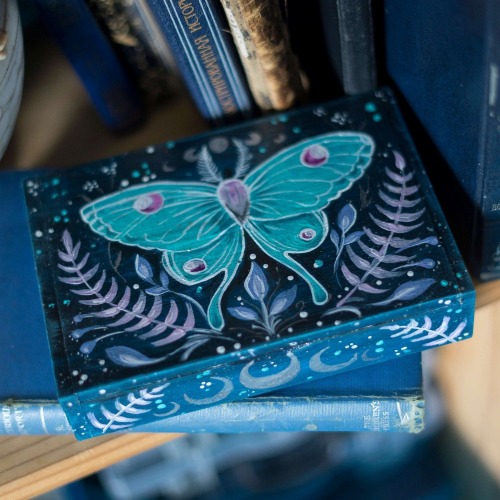



Storage Chest and Boxes
Moon Dome on Etsy


“Birds Nest Fungi” Dress // alicenightingale
-
 flowery-seagoat liked this · 2 weeks ago
flowery-seagoat liked this · 2 weeks ago -
 coloredgalaxies reblogged this · 2 weeks ago
coloredgalaxies reblogged this · 2 weeks ago -
 swanchow reblogged this · 2 weeks ago
swanchow reblogged this · 2 weeks ago -
 nilros-oopsie-doodle liked this · 2 weeks ago
nilros-oopsie-doodle liked this · 2 weeks ago -
 foulpaperbonkparty reblogged this · 2 weeks ago
foulpaperbonkparty reblogged this · 2 weeks ago -
 blue-cat-hat reblogged this · 2 weeks ago
blue-cat-hat reblogged this · 2 weeks ago -
 foulpaperbonkparty liked this · 2 weeks ago
foulpaperbonkparty liked this · 2 weeks ago -
 willowbane reblogged this · 2 weeks ago
willowbane reblogged this · 2 weeks ago -
 dansemacarbonara reblogged this · 2 weeks ago
dansemacarbonara reblogged this · 2 weeks ago -
 clavi-crossing liked this · 2 weeks ago
clavi-crossing liked this · 2 weeks ago -
 mossymoths16 liked this · 2 weeks ago
mossymoths16 liked this · 2 weeks ago -
 afacetomeetthefaces reblogged this · 2 weeks ago
afacetomeetthefaces reblogged this · 2 weeks ago -
 devonofthevalley liked this · 2 weeks ago
devonofthevalley liked this · 2 weeks ago -
 teatimewithroirdan reblogged this · 2 weeks ago
teatimewithroirdan reblogged this · 2 weeks ago -
 cobaltcupcakes liked this · 2 weeks ago
cobaltcupcakes liked this · 2 weeks ago -
 alecvcantusee reblogged this · 2 weeks ago
alecvcantusee reblogged this · 2 weeks ago -
 glassandhearts liked this · 2 weeks ago
glassandhearts liked this · 2 weeks ago -
 musicaldreamlove liked this · 2 weeks ago
musicaldreamlove liked this · 2 weeks ago -
 herdarkskirts liked this · 2 weeks ago
herdarkskirts liked this · 2 weeks ago -
 tenderlysharp reblogged this · 2 weeks ago
tenderlysharp reblogged this · 2 weeks ago -
 minkrose reblogged this · 2 weeks ago
minkrose reblogged this · 2 weeks ago -
 minkrose liked this · 2 weeks ago
minkrose liked this · 2 weeks ago -
 jackofthejones8 liked this · 2 weeks ago
jackofthejones8 liked this · 2 weeks ago -
 silvergryphonart reblogged this · 2 weeks ago
silvergryphonart reblogged this · 2 weeks ago -
 big-gay-bitxh reblogged this · 2 weeks ago
big-gay-bitxh reblogged this · 2 weeks ago -
 your-fav-smooth-criminal liked this · 3 weeks ago
your-fav-smooth-criminal liked this · 3 weeks ago -
 fyeahsteampunkgamers reblogged this · 3 weeks ago
fyeahsteampunkgamers reblogged this · 3 weeks ago -
 moderncentipede reblogged this · 3 weeks ago
moderncentipede reblogged this · 3 weeks ago -
 moderncentipede liked this · 3 weeks ago
moderncentipede liked this · 3 weeks ago -
 gremlin-lair liked this · 3 weeks ago
gremlin-lair liked this · 3 weeks ago -
 modernmutiny reblogged this · 3 weeks ago
modernmutiny reblogged this · 3 weeks ago -
 modernmutiny liked this · 3 weeks ago
modernmutiny liked this · 3 weeks ago -
 likephysics liked this · 3 weeks ago
likephysics liked this · 3 weeks ago -
 ugghhh-just-dont liked this · 3 weeks ago
ugghhh-just-dont liked this · 3 weeks ago -
 moonigma liked this · 3 weeks ago
moonigma liked this · 3 weeks ago -
 ralkana reblogged this · 3 weeks ago
ralkana reblogged this · 3 weeks ago -
 ralkana liked this · 3 weeks ago
ralkana liked this · 3 weeks ago -
 littlebirdsandlemoncakes liked this · 3 weeks ago
littlebirdsandlemoncakes liked this · 3 weeks ago -
 arualclosean reblogged this · 3 weeks ago
arualclosean reblogged this · 3 weeks ago -
 catherea reblogged this · 3 weeks ago
catherea reblogged this · 3 weeks ago -
 catherea liked this · 3 weeks ago
catherea liked this · 3 weeks ago -
 correct-vampire-opinions liked this · 3 weeks ago
correct-vampire-opinions liked this · 3 weeks ago -
 jell-the-sparkled-one liked this · 3 weeks ago
jell-the-sparkled-one liked this · 3 weeks ago -
 jell-the-sparkled-one reblogged this · 3 weeks ago
jell-the-sparkled-one reblogged this · 3 weeks ago -
 wishingondevils liked this · 3 weeks ago
wishingondevils liked this · 3 weeks ago -
 shittininthe1940s reblogged this · 3 weeks ago
shittininthe1940s reblogged this · 3 weeks ago -
 dahlias-love reblogged this · 3 weeks ago
dahlias-love reblogged this · 3 weeks ago -
 soldiermom1973 reblogged this · 3 weeks ago
soldiermom1973 reblogged this · 3 weeks ago -
 marsbars9 liked this · 3 weeks ago
marsbars9 liked this · 3 weeks ago
299 posts

